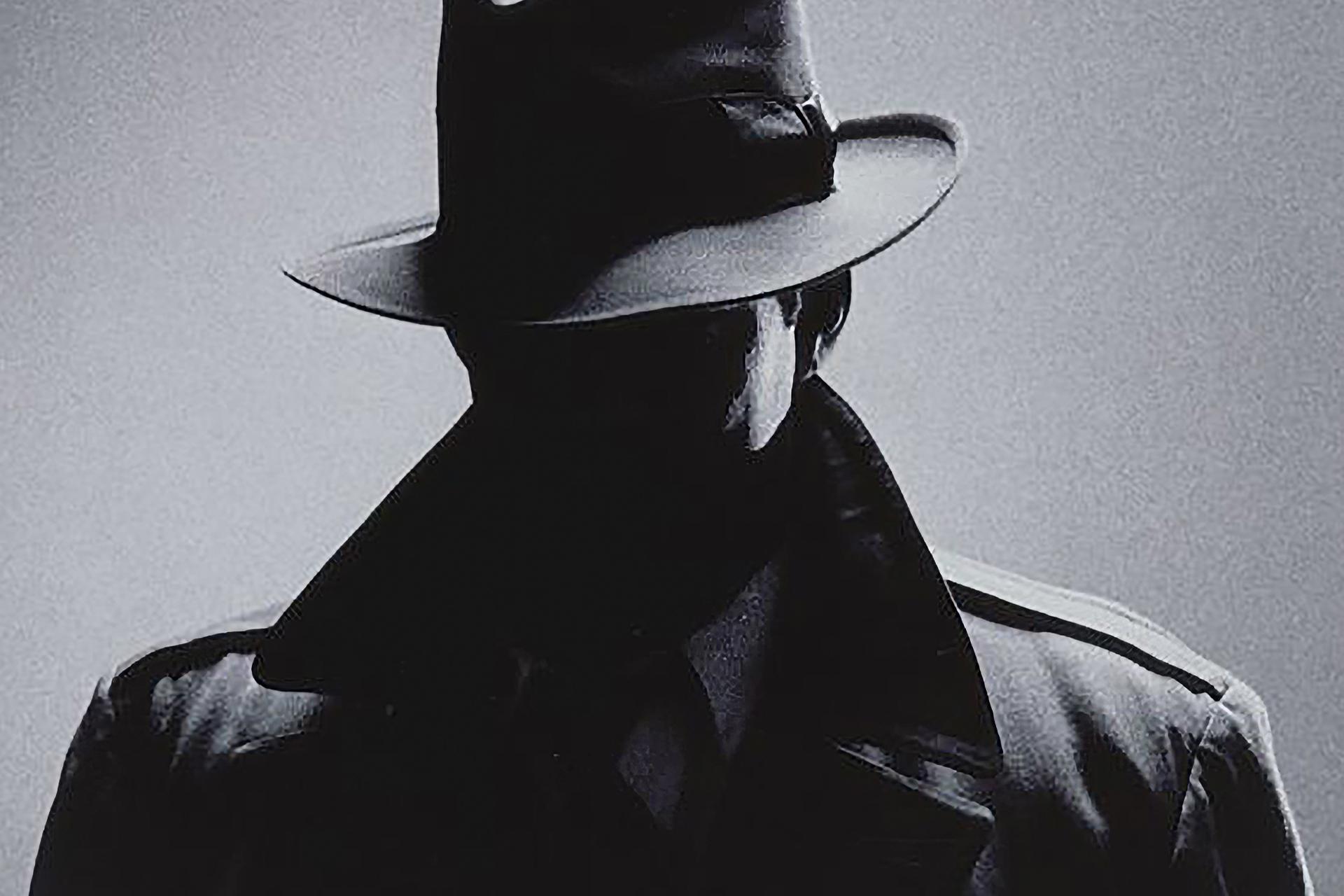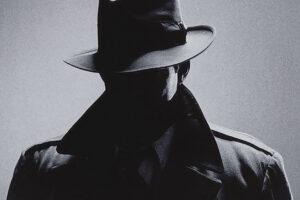In our last installment, Johnny has been warned off the Vincent Santelli case by Captain Farentino.
It was 8am when I walked out of the 25th. Somehow, I felt out of place in the bright sunlight. The rest of the world was rushing at top speed, men were picking up the morning newspapers, grabbing coffee and a donut and skipping down to the 4 or 6 train at Borough Hall or the 1 or 2 Broadway line on Clark Street. They would take them to their offices, work sites, or for one or two sorry souls, some darkened bar where they would nurse their Jameson’s until it was safe to come back home and tell the wife that they pounded the pavement looking for work. Me, I never had a clock to punch, never had a job to get fired from, never had a wife to deceive. My reward was a few bucks in my pocket if I was lucky, and helping some people who got a raw deal out of life. Today my job was finding Vinnie Santelli’s killer.
I decided it was time for me to get a history lesson about the waterfront. Not that I didn’t know a hell of a lot already, my old man being a semi big shot with the ILA and well, growing up hearing the stories that Pop would share at the dinner table late at night playing poker with his pals. I knew a lot, but needed to dig deeper. I decided to go see the most knowing of knowers, Anthony Michael Sabatini aka Tony Stone, my father.
It had been a long time since I had the keys to the apartment where I grew up. Luckily, Jack O’Grady, who rented one of the six apartments that made up the building’s aging residents, was just coming out of his first-floor apartment. He opened the door for me.
“Hey Johnny,” his broad smile shone with the whitest teeth I’d ever seen. “How ya been?” I waited for the punch in the shoulder.
“Great, Jack, you?” The punch came then—a little lighter than the last time that nearly dropped me. Jack had “won my weight title in the Golden Gloves in 1929,” he would remind me when I was growing up. I guess age waits for no one.
“Going to see Pop.”
“Tell him not to be such a stranger, would ya? He lives one floor up, but I hardly ever see him. I mean it’s like he’s purposely avoiding me.”
“Sure will,” I said, as I made my escape by hitting the stairs. I gave him a thumbs up. What I didn’t say is that he was right about my father avoiding him.
“That good for nothing Mick,” my father would say “drinks like it’s St. Paddy’s Day every day. Can’t keep a job. His poor wife spends all day scrubbing floors just to pay the rent.”
I made it upstairs and knocked on our door. Nothing. I knocked again. Again nothing.
“Pop, mom, are you in there?”
Finally, the door opened. My father stood there, in his boxers and a worn undershirt.
Pop, close to six feet tall, still had a good build, his wavy white hair still as thick as ever. It was the eyes that were beginning to show his age. The crystal blue seemed to be fading, and there was a wateriness about them.
“Hi Pop. Where’s mom?”
“Today’s her market day.”
We were still standing in the doorway.
“Well,” I said, “can I come in or what?”
He just snorted and opened the door. I walked in.
“You want some coffee, Johnny?”
“No, had my fill already,” I said.
“Good,” he said, “cause we ain’t got any.”
It wasn’t that my father disliked me, and he wasn’t really an angry man. I knew despite his tough exterior (maybe not now, standing in his underwear), he was proud of me. The silver cross I was awarded in the war, still stood in the place of honor in the living room, and it always looked like it was just polished—mom took care of that. Pop was just terminally grumpy. When I was a kid, he mixed that tough guy act with a really funny sense of humor. He did all the things a dad was supposed to do. The circus, Ebbets Field, even fishing when we’d take those trips upstate. But after twenty-five years fighting for better wages and shorter hours for his “boys,” he was just worn out. And while I got out of the war with few scars, my older brother, Pietro, lost a leg early on during in a battle in, of all places, Italy. Pete, as we all called him, suffered from shell shock. He’d had a desk job at a trucking depot, but got fired for sleeping on the job. That was two years ago. He hadn’t worked since. The fact was that the morphine he was given in the field had turned into a habit. My old man had a real hard time understanding, as much as he tried. I guess he finally settled on living with a broken heart and a broken son.
We both sat down in the well-worn oak dining room table.
“Pop, I’m working on Vinnie’s case.”
He let out a snort, it was his way of saying, “I don’t like it”
I ignored this response.
“I’m doing it for his mother”, I told him, “I’m doing it because he was my friend.”
He gave out another snort, this time a little shorter and softer; I was gaining on him.
“I’m doing it because I know the docks are rotten to the core and it’s time the bad guys got a little pay back.”
His faded eyes, looked straight into mine, “Those bad guys have more muscle than you can imagine,” he spread his callused, rough hands on the table, “they’ll kill you in a minute and dump your body in the East River and then go out for pizza and beers”
“Pop, I need you to give me information, information that will help keep me out of the river,” I said. “Vinnie was printing flyers for the union, I know that. But he was small time. So why the hit?”
“Why do you think, Johnny?” he said. “It’s never changed, not in my time or even before me. Union guys step outta line and they get made examples. Most of the time that means forever.”
“I need to know what’s going on? Why the heat now?”
Pop got up and grabbed a Rheingold from the ice box. “Pop, it’s 9 o’clock in the morning,” I said. He turned around, “You want one?” he said. “Sure,” I said.
He popped the bottle cap with his key and took a long pull from the bottle.
“Well, this goes back a few years,” he said. “I was working with Danny.” I knew Danny Alonzo; he was fast becoming the voice of the union members who were fighting against the strangle hold of the ILA.
Pop took another slug of his beer.
“I’ve known Danny since he got off the boat. That was a while back maybe fifteen years ago. I helped him get his union card. Danny was a good ten years younger than me. He was maybe eighteen at the time. He still thought the streets were paved with gold. I saw the streets a little clearer, my old man being on the docks before me. Anyway, I got him a job at the Moore McCormack Line’s Brooklyn Pier 15.”
I knew the pier, and I knew McCormack ever since I was a kid. Everyone in Brooklyn knew McCormack. At the foot of Brooklyn Heights, the Moore-Mack pier jutted into the East River just upstream from the cabled span of the Roebling’s’ Brooklyn Bridge and looked across to the bottom of Manhattan and the Staten Island ferry sheds.
“Anyway,” my father continued, “The five-mile stretch of the Brooklyn waterfront was—and still is, mostly staffed by the dagos who worked the shit jobs. Somehow Danny didn’t get thrown in with them, and we worked the docks together mostly. The Mob-held piers resembled company towns—that hasn’t changed, everyone has to pay tribute to the Mob. It’s only gotten worse with the new mob bosses like Anastasia and the crooked Yids, like Lansky. Maybe I got a pass since my old man always, went along, never said a word about anything that was going on. Never raised his voice. I guess I resented that, but I can see now that he was only trying to protect his family. But Danny just couldn’t leave things alone. Still can’t. Danny’s first fight was leading a rebellion against the Brooklyn union leadership of the Camardas-the guys who could freeze you out of the shape ups if you got outta line. This musta been six or seven years ago. I was still working but I kept out of it.” He emptied his beer in two gulps.
“In the years since I left, things have gotten really bad. The mobs crackin’ skulls left and right. The mob has centralized, they’ve got more control then ever. Joe Ryan is still dining with the Mayor and the other VIPs at the Commadore hotel. He’s gonna be ILA President until his last breath.” He shook his head, “maybe even after that. I’ve tried to talk to Danny, but you know him—he’s got to be the main event. He’s fighting for a good cause and would give his shirt of his back for anyone, but he’s also got an ego as big as Brooklyn. He’s making speeches again and his followers are getting more and more riled up. I hear he’s even working with some reporter at the Evening Sun to get the skinny on some of the bosses.” He shook his head. “It’s going to come to no good, Johnny, and you’re risking your life getting involved.”
I thought about the two men in the car at Vinnie’s mother’s house. I thought about Captain Farentino. Then I thought about my friend lying cold his face re-arranged, in the morgue.
“But I am involved, Pop,” I said. “Is there anything else you can tell me?”
“Not really, Johnny. I don’t get out that much, with my bum leg and all. The boys still come here but they’re mostly off the job like me.”
He hesitated for a moment, “What?” I asked.
“I did hear he was having a meeting at the St. George Hotel.
“When?” I asked.
He opened his hands.
“That I don’t know.”
“Thanks, Pop.” It was 10:30 and I wanted to get back to the office and make some calls. I got up and he followed me to the door.
“Be careful, Johnny, that’s all I’m asking.”
“I am careful, Pop, and I’m also pretty good at my job.”
“I know,” he said.
We stood in the doorway for an awkward minute. Then he stepped forward and put his arms around me. I couldn’t remember the last time he did that.
“I know” he said again.




Love it!! Love the story and love your writing. Now I gotta read the earlier chapters!
Great chapter!!